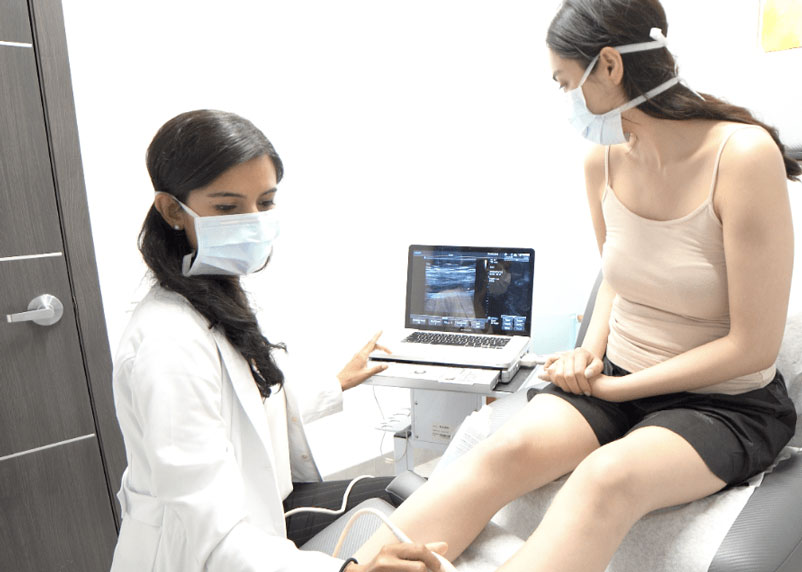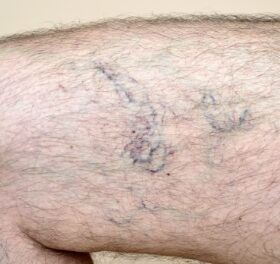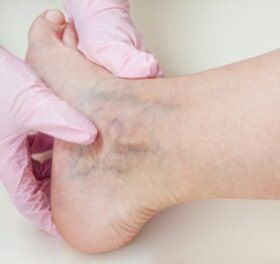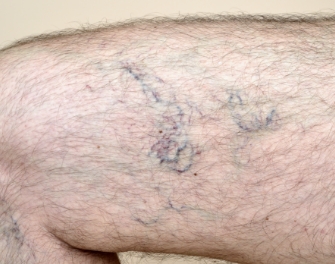If you’re experiencing symptoms like pain, swelling, or discoloration in your legs, you might be wondering if venous reflux is the cause. Venous reflux is a condition that occurs when the valves in your veins don’t work properly, causing blood to flow backward and pool in your veins. This can lead to a variety of symptoms and can also cause more serious conditions like chronic venous insufficiency (CVI). In this article, we will discuss the causes, symptoms, and treatment options for venous reflux, as well as the importance of early diagnosis and treatment.
What is Venous Reflux?
Venous reflux, also known as venous insufficiency or venous stasis, is a condition where the valves in your veins don’t work properly, allowing blood to flow backward and pool in your veins. This occurs when the pressure inside your veins is higher than the pressure outside, causing the blood to flow in the wrong direction. As a result, the blood accumulates in the veins, leading to increased pressure and causing them to become enlarged, twisted, and bulging. This process can also damage the walls of the veins, causing them to weaken and stretch over time.
Venous reflux commonly affects the veins in the legs, particularly the greater saphenous vein, which is the longest vein in the body. This is because the veins in the legs have to work against gravity to pump blood back to the heart, which puts them under more strain. When the valves in these veins fail, the blood pools in the legs, leading to varicose veins. Over time, this can cause more serious conditions like chronic venous insufficiency (CVI), which can cause irreversible damage to your veins and lead to significant health problems.
What are the Causes of Venous Reflux?
The most common cause of venous reflux is damage to the valves in your veins. Valves are responsible for preventing blood from flowing backward in your veins. When these valves are damaged or weakened, blood can flow backward, leading to venous reflux. There are many factors that can contribute to valve damage, including age, genetics, pregnancy, obesity, and a sedentary lifestyle. In some cases, venous reflux can also be caused by a blood clot in your deep veins, known as deep vein thrombosis (DVT).
What are the Symptoms of Venous Reflux?
The symptoms of venous reflux can vary depending on the severity of the condition. In some cases, you may not experience any symptoms at all. However, common symptoms include:
- Pain, aching, or heaviness in your legs
- Swelling in your legs or ankles
- Itching or burning sensation on your legs
- Skin discoloration, particularly around your ankles
- Restless legs syndrome
- Leg cramps or fatigue
- Ulcers or sores on your legs
Why is Early Diagnosis and Treatment Important?
Early diagnosis and treatment of venous reflux is crucial for several reasons. First, untreated venous reflux can lead to more serious conditions like chronic venous insufficiency (CVI). CVI occurs when the veins in the legs are damaged and have trouble sending blood back to the heart. This can cause blood to pool in the legs, leading to swelling, pain, and discomfort. Over time, CVI can cause skin changes, such as discoloration or thickening, and in severe cases, skin ulcers that are difficult to heal.
Second, early treatment of venous reflux can help prevent complications like blood clots or deep vein thrombosis (DVT). DVT is a serious condition where a blood clot forms in one of the deep veins in the body, usually in the legs. If the clot breaks free and travels to the lungs, it can cause a pulmonary embolism, which can be life-threatening.
Third, early treatment of venous reflux can improve your quality of life by relieving your symptoms and reducing the risk of future complications. Treatment options like sclerotherapy, endovenous laser ablation, radiofrequency ablation, VenaSeal, ClariVein, and ambulatory phlebectomy are minimally invasive and can provide long-lasting relief from symptoms like pain, swelling, and discoloration.
What Doctor to See for Venous Reflux?
If you’re experiencing symptoms of venous reflux, you should schedule an appointment with a vein specialist, such as Vein Treatment Clinic. Our vein clinics are led by board-certified vein doctors who specialize in the diagnosis and treatment of vein problems. We use state-of-the-art diagnostic tools like duplex ultrasound to accurately diagnose the root cause of your symptoms. Once we’ve determined the cause of your venous reflux, we’ll create a personalized treatment plan that’s tailored to your specific needs and goals.
What are the Risks of Developing Venous Reflux?
Venous reflux is a common condition that affects millions of people worldwide. While anyone can develop venous reflux, there are certain risk factors that can increase your likelihood of developing the condition. Some of these risk factors include:
- Age: As you get older, your veins may become weaker and more prone to damage.
- Genetics: If you have a family history of venous reflux, you may be more likely to develop the condition.
- Pregnancy: Pregnancy can put pressure on your veins and increase your risk of developing venous reflux.
- Obesity: Being overweight can put extra pressure on your veins and increase your risk of developing venous reflux.
- Sedentary lifestyle: A lack of physical activity can weaken your veins and increase your risk of developing venous reflux.
If you have any of these risk factors, it’s important to take steps to reduce your risk of developing venous reflux. This may include maintaining a healthy weight, exercising regularly, and avoiding prolonged periods of sitting or standing.
Visit Your Nearest Vein Treatment Clinic
If you’re experiencing symptoms of venous reflux, it’s important to seek medical attention as soon as possible. At Vein Treatment Clinic, our board-certified vein doctors specialize in the diagnosis and treatment of venous reflux and other vein conditions. We use state-of-the-art diagnostic tools like duplex ultrasound to accurately diagnose the root cause of your symptoms, and we offer a variety of minimally invasive treatment options to provide long-lasting relief from your symptoms. Our vein clinics are conveniently located across the United States, including New York, New Jersey, Long Island, California, and Washington DC. Contact us today to schedule an appointment and take the first step towards better vein health.











